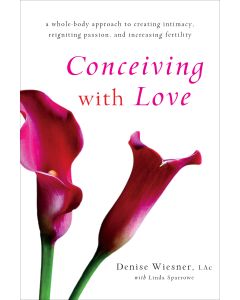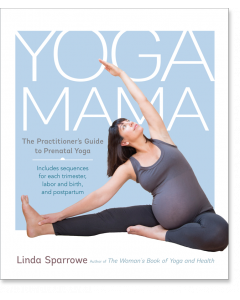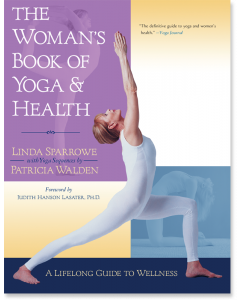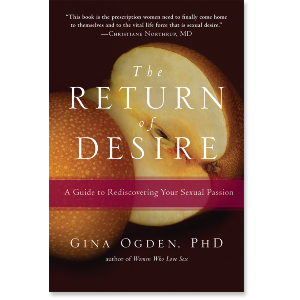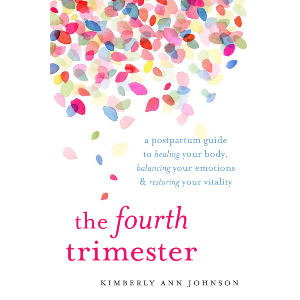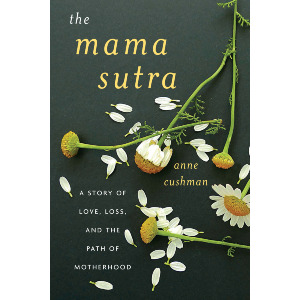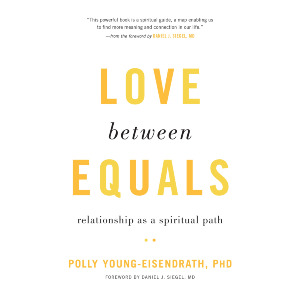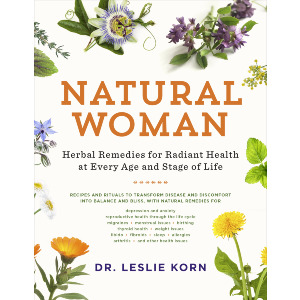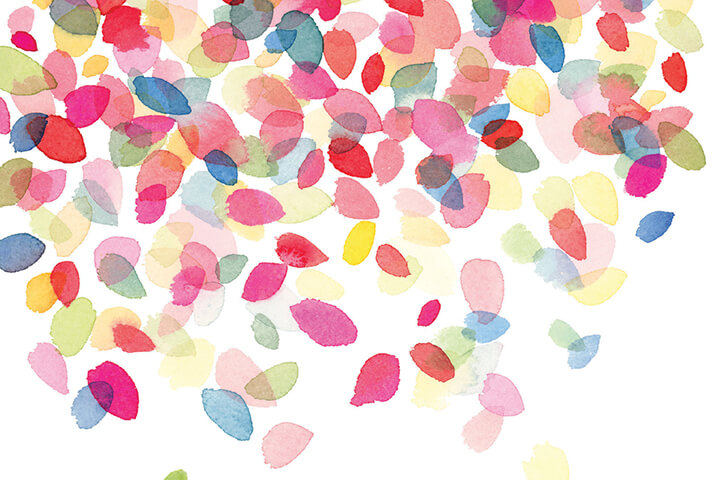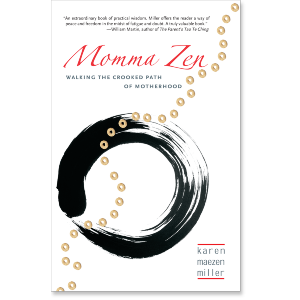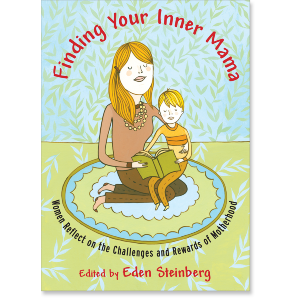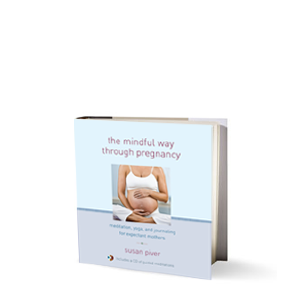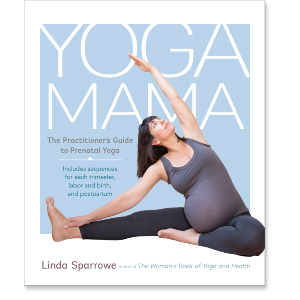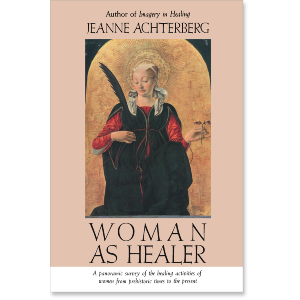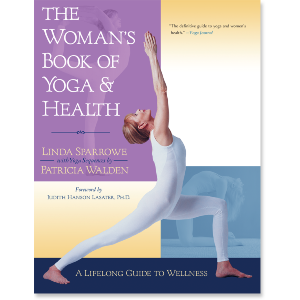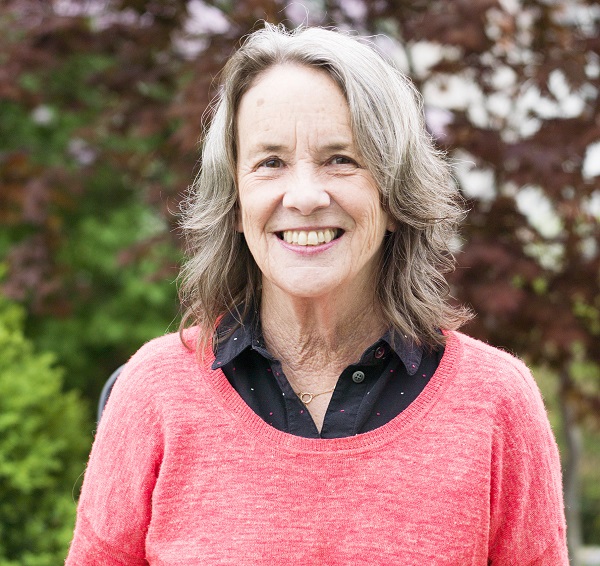

Linda Sparrowe
Linda Sparrowe has written numerous articles on women's health, herbs, and complementary medicine, as well as on yoga and Pilates. She is the former managing editor of Yoga Journal and is now a contributing editor. She is also author of Yoga Journal's book, Yoga, featuring the beauty of yoga poses.
Linda Sparrowe
GUIDES
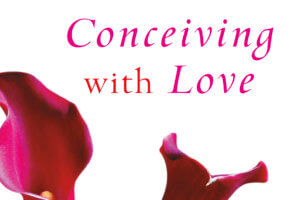
Healing Trauma, Letting Go of Shame
I am a huge fan of Oprah. She has done what she encourages all of us to do: “Turn your wounds into wisdom.” She knows what it’s like to suffer sexual abuse and heal from it. And while she didn’t go on to have children, she did put her creative energy to good use, to stimulate, educate, entertain, motivate, and inspire us all. She believes that whatever our wounds are, wherever our traumas emerge from, we can grow from them, heal, and go on to make a difference in the world. If you have had your own traumas, use this chapter for suggestions to get back to pleasure and love, and from that place create intimacy that has no choice but to bring life forward.
For those of you who suffer from sexual trauma, please know you’re not alone. In my many years of treating women and men for sexual dysfunction and infertility challenges, I’ve seen hundreds of ways that trauma has played a role in their distress: ambivalence or aversion to touch or sexual penetration, to their own bodies, and even to the idea of parenthood—all of which spill over into their day-to-day relationships and, in some cases, prevent them from achieving their goals.
Trauma is highly personal—no two people react to difficult experiences in the same way.
Before we dive too far into how trauma can adversely affect your ability to conceive, let’s take a moment to define it. Trauma is a person’s reaction to an event that overwhelms his or her ability to cope or integrate it. Trauma for women and men can stem from unprocessed emotions—wounds from childhood, adolescence, or young adulthood caused by physical, emotional, or sexual abuse; negative messages about sexuality; betrayal, self-loathing, addiction, and dishonesty; old memories that surface from having an abortion or a string of miscarriages. And finally, trauma can emerge from the stress of trying to conceive in the first place, made even worse for couples who must choose medically assisted fertility treatments. Trauma shows up as negative thoughts and self-criticism; as anxiety, fear, and sadness in the emotional body, which can’t be expressed or released; and in the somatic body as physical conditions—vulvar pain in women, for example, and erection or ejaculating difficulties in men. All of these forms of trauma can keep women and men from experiencing sexual pleasure.
Trauma is highly personal—no two people react to difficult experiences in the same way. For example, Ava, a patient of mine, discovered many years ago that she had gotten genital herpes from a boyfriend who lied to her throughout their relationship. Now, many women and men I’ve worked with have confessed to having herpes, too—after all, it’s a pretty common condition. And many of these folks have been able to accept it as an unfortunate reminder of their not-so-skillful past. Not Ava. She felt such unrelenting shame around her diagnosis that it deeply affected her ability to have a loving relationship with a man—for more than twenty years. When she got married, she insisted her husband wear a condom whenever they made love. When they were ready to have a child, she let him cut a hole in the tip of it.
Neuroscientists believe that trauma resides in the amygdala, the part of the limbic system where emotions are stored, but not language or speech. Hazel Williams-Carter, a traumacologist, healer, and founder of healingtraumacenter.com, explains that the amygdala is home of implicit, or emotional, memory. This part of the brain uses past experiences in the form of emotions and sensations to remember things without actually thinking about them. The amygdala responds not only to real fears (or other emotions), but also to the memory of fear. “For this reason, people who have been traumatized may live with implicit memories of the terror, anger, and sadness generated by the trauma,” she says. This surfaced recently for Angela, a patient of mine who admitted that she hated having her breasts touched because she had been molested by her father. Whenever her partner goes to touch her breasts, she recoils; she wants to feel turned-on, but her amygdala registers fear and rage. She and her partner are working on ways to be intimate without triggering old, unprocessed emotions. Communication, as always, is key.
Trauma isn’t necessarily tied to the past for couples trying hard to conceive. The fertility journey itself can be fraught with so many disappointments and conflicted feelings to work through, all of which takes a toll on a couple’s ability to stay positive and connected. Women frequently complain to me that they get retraumatized every time their doctor reminds them that their eggs are “old,” or tells them they have a slim-to-none chance of ever conceiving. They feel inadequate, ashamed, and depressed, which in turn affects their ability to be present in their intimate relationship and in their relationship with friends and co-workers. They end up blaming their partners and shunning their friends.
Working through trauma requires help. Forgiveness work, acupuncture, ritual, trauma-sensitive yoga, spiritual guidance—these are all tools that can help release stuck emotions. They all involve the body, not just the mind, because, as trauma experts will tell you, trauma lives in the body and needs to be released from the body. Talk therapy alone doesn’t work because recounting your story can retrigger your nervous system and send you right back into fight-flight-freeze mode, as though the event were happening all over again.
ACUPUNCTURE AND THE EIGHT EXTRAORDINARY VESSELS
Much of my understanding of trauma and Chinese medicine comes from my teacher Jeffrey Yuen, an eighty-eighth generation Taoist priest of the Jade Purity School, Lao Tzu sect, and a twenty-sixth generation priest of the Complete Reality School, Dragon Gate sect—and a highly sought-after teacher of traditional Chinese medicine. As it turns out, acupuncture and TCM have a lot to offer anyone suffering from trauma, whether that trauma originates from an accident, the death of a loved one, childhood sexual abuse, or sexual dysfunction. Problems exist, the masters say, when we get separated from our authentic self and we don’t do the work to understand what we’ve inherited physically and emotionally. The goal of TCM is to bring you to back to your authentic self, your true essence, which is never wounded or traumatized. Your authentic self, as Lonny Jarrett, author of The Clinical Practice of Chinese Medicine, explains, “is fully formed, always complete, and desires nothing except to be expressed.”
To express our authentic self, Chinese medicine calls on the Eight Extraordinary Vessels (aka the Eight Extra Channels), the pathways of energy that supply all the meridians of the body with life force and blood. In an article she wrote for Acupuncture Today, Mary Elizabeth Wakefield, LAc, Dipl.Ac., MS, says that the Chinese term for these eight vessels, Qi Jing Ba Mai, describes them best. She explains: “Qi is the energy that is likened to an ‘ah-ha’—a flash of enlightened understanding. Jing penetrates our ancestral roots and makes up our DNA matrix—it is the precious essence of life. Ba means ‘eight.’ Mai symbolizes the movement in the meridians.”
Much like the chakras in yoga, which are also powerful energy centers, the Qi Jing Ba Mai can become blocked by unresolved emotions or traumatic experiences. To heal trauma, we must address our wounds and release the stuck energy from these pathways. It’s vital that we do this so that we don’t accidentally pass these patterns on to the next generation.
As trauma experts will tell you, trauma lives in the body and needs to be released from the body.
Working with the Eight Extraordinary Vessels is TCM’s way of reversing epigenetic inheritance. Epigenetic inheritance, according to Bruce Lipton, PhD, a stem-cell biologist and author of The Biology of Belief, is the understanding that “all the cells of your body are affected by your thoughts.” Beyond that, epigenetic researchers have found that those cells are also affected by the trauma we inherit from our parents and grandparents. This inheritance can alter gene activity without disturbing our DNA. The good news is that we can begin to reverse such epigenetic changes. In other words, we can release stuck emotions from our own experiences as well as those we’ve inherited, and this can stop us from passing them down to our own children. One way to do this is through the eight extra channels.
Eight Extraordinary Vessels work is pretty complex, so I don’t want to give you the impression that I’m offering a one-size-fits-all healing. There’s no such thing. I’m merely presenting a basic understanding of what these channels are and what they mean, along with some suggestions that may resonate with you. If you want to dive deeper, I invite you to find an acupuncturist who is familiar with these vessels.
Chong Mai: Penetrating Vessel
The Chong Mai invites us to understand ourselves and how we have arrived at where we are. Home of our ancestral inheritance, it is what we pass along to our offspring. And yes, that includes our own traumas as well as those of our parents, grandparents, and on and on down the ancestral line. The reproductive organs are part of this vessel, too. Some say that energetically the uterus holds on to and stores these unprocessed emotions, until they can be seen, acknowledged, and released. So it’s easy to see how trauma can be transferred to our children before they even come into the world. Stories of not being wanted—like the mother who told her daughter, “Don’t have kids, they are such a big burden,” are held in this vessel and can destabilize it. So can anxiety, especially if your parents and or grandparents suffered from it. Being a victim of sexual violence can cause the Chong Mai and the Ren Mai to shut down.
When Chong Mai is balanced, our reproductive energy (Kidney essence) rises up toward the heart as the Heart essence (love and passion) moves downward. The Chong Mai is the pathway they travel to join together. That pathway should be clear of obstacles (traumas, sorrows, unprocessed emotions) so that our children can inherit vitality, strength, and a loving heart. To ensure that, we want to conceive in love, not when we’re full of anxiety, distrust, and confusion.
Ren Mai: Conception Vessel
The name says it all: this meridian nourishes life. What seeds do we want to plant, nurture, and give birth to? The Ren Mai, which regulates reproductive function, controls all aspects of a woman’s natural cycle—conception, fertility, pregnancy, puberty, and menopause. Furthermore, this vessel asks Who am I? How was I nurtured by a primary caretaker? Did I get enough care?
Ren Mai trauma can happen as a result of childhood neglect or abuse. Perhaps as a child you had primary caretakers who weren’t attentive, who didn’t help you learn to emotionally self-regulate, or were abusive. All of these memories leave a residue in the Ren Mai that can affect your ability to be intimate, feel worthy of love, or capacity for comforting yourself. These insecurities and traumas can manifest as an excessive need to be validated, needed, or loved by others, as well as a tendency to overeat or overindulge in drugs, alcohol, or inappropriate sexual behavior. The Ren Mai can also become unbalanced if your primary caretaker in childhood was overprotective and prevented you from exploring on your own. As an adult, this imbalance, seen as stagnation of qi in the abdomen, can lead to anxiety and insecurity.
To balance Ren Mai, the focus becomes “How can I love myself more?” Self-care is the first step to true healing. It may take a combination of talk therapy, loving-kindness meditation, acupuncture, and body-based practices like yoga and qigong to begin to feel more deserving of love and to learn how to honor yourself. The late Ray Rubio, founder of the American Board of Oriental Reproductive Medicine, once said, “We can’t let the past define us. We must know our story, share our story and know how to do rewrites.” That’s not always as easy or comfortable as it sounds, of course. But, Brené Brown, PhD, a research professor at the University of Houston, Texas, and a prolific author who talks and writes about vulnerability and shame, says, “Owning our story can be hard but not nearly as difficult as spending our lives running from it. . . . Only when we are brave enough to explore the darkness will we discover the infinite power of our light.”
Du Mai: Governing Vessel
Beginning at the perineum and moving up the spine, the Du Mai joins the Ren and Chong vessels in the Who am I? inquiry. The Du Mai, also called the Vessel of Individuality, is the body’s yang aspect and presides over our individuation, the process of becoming self-aware or self-actualized. It’s evident in children as they go from crawling to walking and begin to explore a world that includes more than just their primary caregiver. Adolescence is the second phase of individuation, when a young person discovers a sense of self distinct from, and not dependent on, the approval of their parents or caregivers. When there is weakness in this vessel, adults lack the motivation to go forward and often, instead of persevering, will give up, retreat, or slip into depression. Some describe feeling as though their strength has run out and, in terms of baby-making, they say trying to conceive is “just too much work.” In the face of loss or disappointment such as a miscarriage or failed IVFs, they may be too scared to try again. On the other hand, a person with a Du Mai excess has a pretty rigid way of looking at the world and can get stuck in a “my way or the highway” mentality.
To balance this vessel it’s important to reflect on what motivates you. What keeps you from moving forward with your dreams and desires? What are you afraid of? If a deficient or excessive Du Mai is preventing you from having a loving relationship, you may want to get help from a life coach, sexologist, or fertility specialist; an acupuncturist can suggest treatments and herbs to increase your motivation and even your sex drive. Practice yoga or qigong to gain flexibility—a flexible body can yield a flexible mind.
In life, we need a good balance of Ren Mai and Du Mai energies; in other words, a healthy sense of who we are, knowledge of where we want to go, and the ability to make it happen. Jeffrey Yuen says that we get the resources we need to create our destiny from these three vessels: the Chong gives us our blueprint, the Ren supplies the lumber, and the Du Mai provides construction.
Yin Wei Mai and Yang Wei Mai (Linking Vessels)
The two Wei vessels are like ropes or nets that hold things in place both structurally and psychologically, and they have to do with the aging process. They ask the question What is my life’s purpose? When the Wei vessels do their job, we can meet life’s challenges with more equanimity and grace and can bounce back from adversity. A strong Yang Wei vessel protects us from disease and external negativity, while Yin Wei nourishes us from the inside. When our Yang Wei is stable enough to withstand outside turmoil, we know how to choose actions that support us. Reaching out to those we know we can rely on—family, friends, mentors—can shore up the Yang Wei. So can being part of a community—perhaps joining a meditation circle or a church or support group. When our Yin Wei is strong, we know how to find what we need to feel more resilient, to be able to meet and withstand our internal turmoil and confusion. Conversely, a loose Yin Wei “net” can manifest physically as pain in the chest or around the heart. Emotionally, we may have trouble divorcing ourselves from past disappointments; we get caught in the past, stuck in the “if onlys,” losing sight of where we’re going.
To balance or strengthen the Yin Wei, it’s important to acknowledge your feelings—all of them, without judgment. When you feel scared or ashamed, for example, instead of denying that you feel this way, you must commit to sitting with the fear and shame. In doing so, you may realize that the emotion is attached to the past and is trying to keep you there, too. Or you may discover that it isn’t yours to begin with. If you have a tendency to complain about everything, once you sit with it you may realize that your mother used to complain all the time, too. You can then tell yourself that you have the power to feel those feelings, but you also have the power to release them—with gratitude. This unhooks the place in yourself where the energy in the net is bound up. As you take a look within, see if you can discover the places that feel stuck or constricted—perhaps the throat, your chest, or your pelvis. Chances are that’s where you hold on to feelings you’d rather not look at. Breathe there—slow, easy, and steady breaths. Offer loving-kindness to the feelings you’ve harbored for so long and gratitude for their willingness to let go of you.
Yin Qiao Mei and Yang Qiao Mei (Vessels of One’s Stance)
These pathways originate in the ankles and go to the eyes. How we stand in the present-day awareness of who we are is predicated on what our childhood experiences were. We can take our place in society when we know who we are.
Yin Qiao asks the questions Am I comfortable in my body? Do I know who I am, even in the darkest aspects of myself? When Yin Qiao is not in balance, all you want to do to is close out the world so no one can see how broken you feel. This is common in patients who are struggling with conceiving. They don’t want to go to baby showers and they dread dinners with friends who have given birth already or who can’t wait to share the news of their own pregnancies. They want to keep their distance from anything that could remind them of their “failure.” I certainly am not interested in judging that inclination. What I am interested in is helping them strengthen their Yin Qiao Mei, which can address their feelings of inadequacy, their fear that they are not whole because they haven’t conceived yet. One way to do that is by working with an acupuncturist. But Yin Qiao also invites us to practice loving-kindness and self-love in the moment. A powerful reminder comes from Theravada Buddhist teacher Ajahn Sumedho, who says, “Right now, it’s like this”—a great mantra to help us stay in the present, with compassionate attention.
The Yang Qiao asks the questions How do I move in the external world? Do I have a sense of ease in my body? Can I stand straight and tall? Chronic pain in the neck, shoulders, and hips generally indicates imbalance in the Yang Qiao. This happens when you are moving forward at lightning speed, going from one thing to another, focusing on a single goal at the expense of everything else. It’s when you don’t know when or how to stop. To bring the Yang Qiao back into balance it’s best to close your eyes and go inward toward the Yin Qiao. In other words: Stop. Listen. Feel. I encourage couples who have been using fertility drugs month after month without results to consider taking a break for a bit. Allow the nervous and immune systems to reregulate, and give the mind a chance to quiet down.
Communicate with your partner. Your job is to listen compassionately and patiently.
Dai Mei: Belt Vessel
Wrapped snugly around our lower area like a belt, this vessel guides and supports the qi of the uterus and that of the many energy pathways that flow through the torso. It is also where our body stores any trauma we’ve experienced from being violated and any deeply held sentiments we can’t allow ourselves to feel. Sometimes people gain weight around their middle as a way of protecting themselves from unwanted advances or for other emotional reasons. Others may experience lower back pain that wraps around to the front. These are Dai Mei imbalances; others may present as fibroids, cysts, painful periods, painful intercourse, or prostatitis. A weakened vessel can even lead to miscarriage or uterine prolapse. The classic Chinese medicine texts say that an excess of Dai Mei can feel as though you’re carrying five thousand coins on your back. So the question becomes What are you carrying that no longer serves you?
When the Dai Mei energy is stuck and the qi is not moving, I recommend using a rebozo, a very long, woven scarf used by Mesoamerican indigenous peoples. Midwives and doulas use these scarves to aid in labor and birthing. I find them helpful to get the uterine and pelvic qi unstuck or to strengthen a weakened Dai Mei, which can happen after a miscarriage. To move stuck qi, lie on your back and position the rebozo underneath your hips. Have your partner or a friend hold on to the ends of the rebozo and gently shake it back and forth, vigorously enough that you feel some shimmying in your hips. If your Dai meridian needs tightening because of the trauma of miscarriage, ask your partner to wrap the scarf around your womb center and tighten it like a belt.
HOW TO SHOW UP FOR YOUR PARTNER
The fertility journey is fraught with stress, which becomes much more acute when things feel like they’re going terribly wrong. Miscarriages and failed IVFs are opportunities to bring couples closer instead of pulling them apart. Here are a few tips on how to be present with your partner through it all:
- Don’t take anything personally. If your partner has issues about her sexuality or her inability to get pregnant, it’s not about you. Understanding this will help you be present without being defensive.
- Communicate with your partner. Your job is to listen compassionately and patiently. No matter how many times she needs to process, no matter how many times he wants to talk about his fears or inadequacies. Through loving conversations, commit to discovering what each of you needs from the other to stay positive and to get through the hard times.
- Reach out to others. What you both need is a good support system, beyond the two of you. Engage family and friends who love you, around whom you feel comfortable. People like that can have a positive effect on your mood and can, by their very presence, bring you closer together.
Share
Related Books
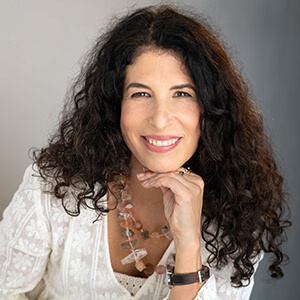
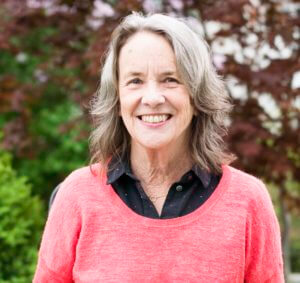
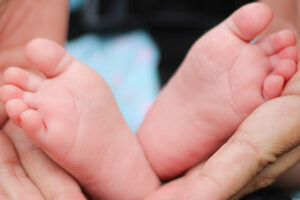
Q&A with Kimberly Ann Johnson of The Fourth Trimester
John Spalding & Kimberly Ann Johnson
What made you to decide to write The Fourth Trimester?
I didn’t set out to write a book, but I have been a harbinger of a message that is to speak about the unspeakable, and I realized that this information had to become common knowledge. When I was a new mother and struggling with a birth injury (although I didn’t even know that was a category), I combed Google to find holistic resources for the postpartum time. Time and again all I found were hundreds of thousands of entries on postpartum depression validating it. I couldn’t find anything on the impacts of the physical injuries and symptoms I was experiencing or what I could do about them. It was such an incredibly long healing journey for me, I wanted to write the book I never had and make it easier for other women to have all the information in one place, together with stories of women they could identify with.
What is the biggest unexpected challenge new mothers face in the first three months?
We place such a high value on autonomy that most women have the ideal that if they can do everything alone during the fourth trimester, they have succeeded and are a legitimate superwoman. In fact the opposite is true, this is a time when women have to learn how to receive help or they end up isolated and lonely. It can be very challenging for high-achieving, self-sufficient women to ask for help and receive it.
Another big challenge is no secret to new mothers: many relationships struggle after the baby arrives. What can couples do?
Before baby arrives, couples can troubleshoot what they might anticipate as difficulties and share with each other the support they imagine they might need. They can also recommit to themselves as the center of the family unit. This book offers suggestions of ways to check in and stay connected on verbal and physical levels during this sensitive time, so that it can bring couples closer together. Yes, it is possible to experience more intimacy with your partner through this transition.
You write that, like a lot of new mothers, you often felt depleted the three years after you had your daughter, and that you turned to exercise hoping to feel better. Instead, it always left you feeling more exhausted than energized. Finally, you found help in traditional Chinese medicine. Can you tell us about that?
On the most fundamental level, recovering from childbirth requires that we preserve and replenish our life force. Because of the extenuating circumstances of my recovery (a severe birth injury, living in a new country without friends or family, breadwinning for my family, breastfeeding challenges) and without any knowledge of the physiological postpartum needs, I was severely depleted. Exercise, which would have normally given me energy, drained me. So I learned that I needed to go back to the basic foundations of deep rest and nutrient-dense, collagen-rich food so that my system had energy to build from.
What does your book offer readers they won’t find elsewhere?
The information on women’s experience after having babies is sparse. We go from pregnancy books galore to baby books about sleep training and raising kids- we leave out the experience of women completely. Never before has information on the physical, the emotional, the physiological, the relational, the sexual, and spiritual elements of this transition to motherhood been put together in one place in a digestible, easy-to-read practical format.
What do you most hope new mothers will take from your book?
I hope that new mothers understand that there is good reason for however they are feeling. If a woman is receiving advice that everything is normal (her body, her mood, her relationship) but she doesn’t feel normal, that she knows help is out there. I want women to understand the profound shift that occurs, and that this transition and the mother herself is every bit as important as the baby. The cultural adage that as long as mother and baby are alive, then it’s all good needs to be updated. We want mothers and babies to not just survive, but thrive, and this book offers the inner and outer resources for families to do just that.
Kimberly Johnson/Magamama’s The Fourth Trimester promo
Share
Related Books

She has private practices in Encinitas and Los Angeles, CA, specializing in helping women prepare for birth, recover from birth injuries and birth trauma, and access their full sexual expression. You can find her online at www.MagaMama.com.

